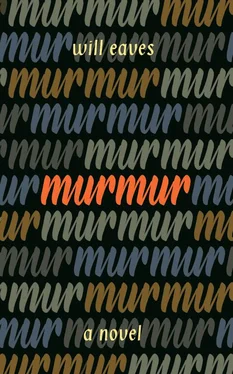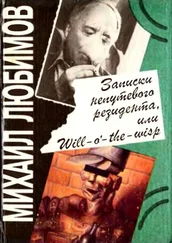Love to you, A.
One can never know that one has not made a mistake.
—A. M. Turing, in Ludwig Wittgenstein’s lectures on the foundations of mathematics (1939)
After a restless night, the Forester awakes to solid things—his half-doored house on Chapel Hill, its deep windows, the beams and stairs built from a merchant ship, the iron kettle on the range, a cottage loaf, the hunting knife.
His heart thuds like a fence post going in. How soon the morning turns over and spoils! That knife is wrong. It glows ingeniously. It has been cut into the scene.
As it shimmers, the Forester remembers his instructions like a fever, how the Great Queen summoned her servant and said, “Now is the time to go about your daily work as if nothing had changed. To tend the coppice, plant your Sitka spruce, your larch and pine. Now kill your friend, the one who gives your life meaning, beneath an oak. Bring me the Fair One’s troubled heart. Whet your routine with my design, the call of justice, and forget…”
“I don’t know why I brought the subject up. I didn’t mean to ask you about God.”
“I know,” says June, whose father is a priest. We’re on a stile above Lewes and looking out over the gorse and bee ripple toward the sea. “But don’t worry. It comes of making out the hidden meaning of things all day long, and being bound to secrecy. We live with codes, we speak in them. One ends up being almost too discreet.”
“I meant to ask if you would marry me.”
Brown admirals flick by, a flipbook pattering of states. June points.
“Look at those cattle ponds. Aren’t they magnificent? From here they look like little pieces of the sky. Mother-of-pearl.”
“Flakes of mica?”
“Perhaps.” June smiles. “Probably shell. On most beaches, mica’s less prevalent than shell, because of all the mussels, barnacles, and what have you…”
“I see. Doubly enciphered pond!”
“And yes.”
“Yes, what?”
“Yes, I will marry you.”
“That’s good. You’re sure?”
“I can say anything to you, Alec. And you can say, well, anything you like to me. Of course I’m sure. Besides, who else will ask?”
“You wouldn’t find me too unorthodox, as husbands go?”
June ducks her chin. Fine hair escapes a messy chignon and floats sideways in the breeze. “As husbands go, I’d rather you didn’t. And anyway, I’d hoped not to be forced to make comparisons.”
“But then…” The wind is getting up, which helps me to be brave. My nerves are scrambling themselves. “I should like to have children, June. A pair of each, to balance things. It’s difficult, to bring oneself—”
“Turning blowy.”
“—to be clear what it is one needs. I should be very loath to feel I’d shortchanged you. Inveigled you into a sort of… social pact.”
“And isn’t that what marriage is, a pact?”
“It is, of course. But inside marriage, people are still separate. I don’t want to live by appearances. False ones, I mean. If only we were all allowed to be…”
June sighs, “Oh, let me guess. Transparent? Who we are? Then what? Why bother with the pacts and marriages? We’d not be separate at all. Just wandering spirits. I think I see why you were mixing up your proposal with God.”
“I’ve had lovers—I’ve been in love before.”
“I’d gathered that. You reach out when you doze. With a woman?”
She smiles through hair. Clouds flee the ridge. The red flash of a goldfinch darts up from a thistle clump. It is an art to be fearless. June’s like a guelder rose, the dogwood’s umbels, and the bark of the elder, all plants that mark these hills with centuries of growth and form. Unpretty, strong. They’ve no opinion of me, or anyone.
I hear my blood above the wind, the thud of alertness in sleep. And then the coming to, the smells of grass and mud, carbolic soap on skin and clothes. The blossoms of the wayfarer that turn in June’s right hand. A flower wheel.
“It isn’t anything you said,” she says. “You know, the way people imagine things are said, or solved, back at the ranch. I’m sure the operators think the Bombes are solving Enigma. Only we know it isn’t quite like that. They’re not solving a thing they know about. They’ve no idea.” Her eyes pursue thoughts grappling the air. The wind abates. “They’re passing current, spinning, clicking, and that’s all. Whereas, to us, it’s meaningful. A reduction of wheel orders, a precious glimpse of possibilities for where things are inside the enemy’s machines. I’m not saying it isn’t wonderful, what your contraptions do—but the amazing part is us, our making sense of it. Pouncing upon a lead. A likely crib. And then the really funny thing is this: just maybe, Alec, you are—we are—in the end a little Bombe-like, too: giving off sparks and hints that we don’t understand ourselves.”
She takes my hand and looks at it. “We have this strong notion that only we can know ourselves, but maybe we make better sense in others’ eyes.”
A mouth appears in her posy. An evolutionary riot of change—a cloud massing, a lightning strike—splits cells, reroutes the glycoproteins and sugars, performs an eon-long foxtrot. The lips speak only Native Plant, the noise of a bud opening. “ These are my thoughts ,” hazards the Wayfarer, “ and what you’ve said, June, persuades me: the Bombes could be thinking. If part of how you think is inaccessible to you, perhaps a sham, and theirs is totally, then where’s the point of severance? ”
And on that sibilant last note the posy wilts, its flowerets fade.
“It’s late. It’s time we went,” I say, into a salty gust. Lining our track, the hawthorn and hollies shiver. “There’ll be a storm. We ought to call in on Mother, on our way back. Give her the glad tidings.”
“If you insist,” June says. “She’ll think me loose. I’m not wearing a hat.”
“You lost it on our walk.”
“And so I did. How silly of me to forget.”
*
Leaves skip ahead of us as we near Chapel Hill, the lane that falls past flint-clad cottages onto the Brighton road. Our bikes are where we left them at the entrance to an overgrown snicket of yew, ivy, and hart’s-tongue fern, through which a stream dribbles its way into the Ouse. The snicket leads to a graveyard. The cottages are battening down. Hard faces and forearms reach out from dark interiors to pull the half-doors shut. We’re strangers, here. June takes my arm: she understands the thrill of banishment. Even the rattling hedge applauds our solitude. The secrecy of everything we do makes us invisible. We are not welcome in the world of graft and privation, call-ups, rations, and refugees. We do not work in the same factories, making buttons, checking tool parts; or know—or ever will know—what it’s like to lie awake in crowded attics monitored by rats. We have plunged otherwise into reality. We are like spies upon ourselves, living behind the shopfront of appearances, manners and decency. We seem to do nothing but symbolize and calculate. Bletchley: a country-house party for intellectuals driven about Berkshire in smoky-glassed buses. But what we do forces the key that opens doors of consequence. With this one needle click of a rotor, in one machine, I thread a bridge across the Atlantic, escort a merchant vessel home. I do not fight. But I outwit. I conjure for the German sea-wolves nothing but a fret-filled oceanic vacancy.
June is astride her bike and ready to set off.
“There’s something else.” I point toward the woods. “In there. I haven’t got a ring for you. But I have—a dowry. Two, actually. I brought them here a while ago, when I was—visiting my friend.”
Читать дальше












